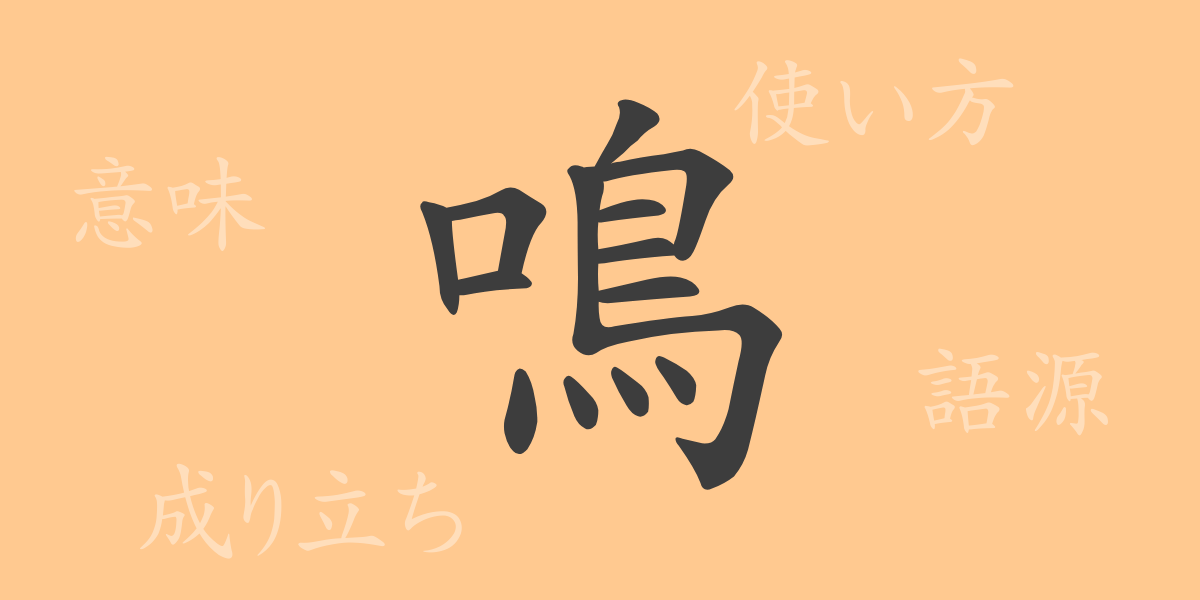In the Japanese language, there are numerous kanji characters essential for expressing emotions and the sounds of nature. Among them, the kanji “鳴” (mei) is used to describe various sounds that resonate in our daily lives. This article delves deeply into the charm of the kanji “鳴” (mei), exploring its origin, meaning, usage, and cultural impact. Both learners of Japanese and native speakers will find new discoveries within.
Origin of 鳴 (mei)
The kanji “鳴” (mei) is a character passed down from ancient China, symbolizing the image of a bird chirping. It combines parts representing a bird’s head and mouth with the element “口” (kuchi, mouth), which denotes sound. Originally focused on bird sounds, it evolved over time to refer to the sounds made by various creatures and objects.
Meaning and Usage of 鳴 (mei)
The kanji “鳴” (mei) means “to produce sound.” It is used to describe not only animals making sounds but also musical instruments playing tunes, the sound of the wind blowing, and many other phenomena. Additionally, it is used metaphorically, as in the phrase “名が鳴る” (na ga naru), meaning to gain a reputation.
Reading, Stroke Count, and Radical of 鳴 (mei)
Understanding the reading and structure of the kanji “鳴” (mei) can deepen your comprehension of the Japanese language.
- Reading: On-yomi (音読み) is “mei,” and kun-yomi (訓読み) includes “naku” (なく), “naru” (なる), and “narasu” (ならす)
- Stroke Count: 14 strokes in total
- Radical: Bird radical (鳥部, torihen)
Idioms, Proverbs, and Phrases Using 鳴 (mei)
Idioms, proverbs, and phrases containing “鳴” (mei) are rich in Japanese. They are used to vividly depict scenes in literature and daily conversations.
- Idiom: “鳴門” (Naruto) – The name of a strait in Tokushima Prefecture famous for its whirlpools
- Proverb: “泣く子と地頭には勝てぬ” (Naku ko to jitō ni wa katenu) – Meaning that no matter how logical you are, you cannot win against emotions or the atmosphere of the situation
- Proverb: “猫に小判、鳥に鳴らぬ笛” (Neko ni koban, tori ni naranu fue) – A lesson that giving valuable things to those who do not understand their worth is futile
Summary of 鳴 (mei)
The kanji “鳴” (mei) is frequently used in our daily lives. It not only expresses the voices of animals and sounds of nature but is also employed to symbolize people’s emotions and social phenomena. Understanding this kanji can help you appreciate the depth of the Japanese language and culture, rediscovering its beauty. We hope this article helps you feel the diverse expressive power and charm of “鳴” (mei).

























